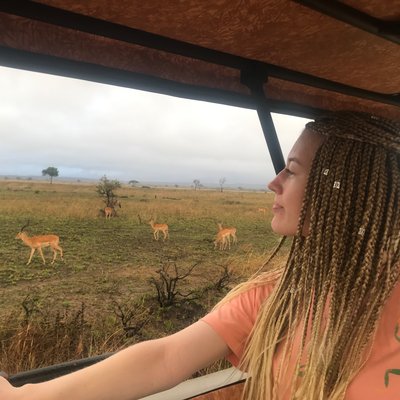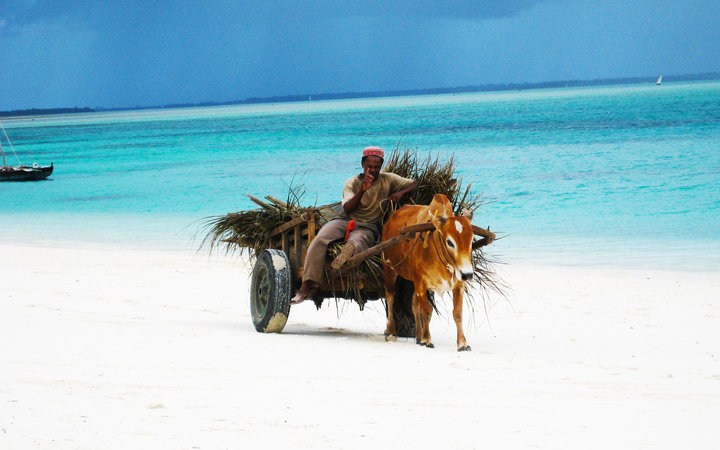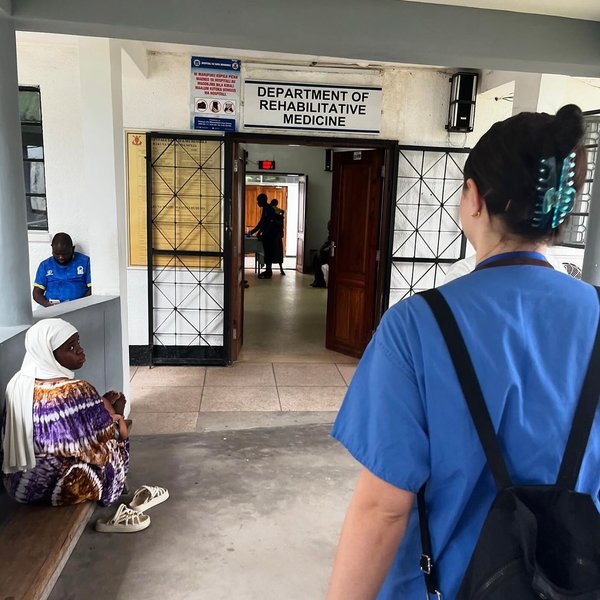Oxford Brookes University 2020
I chose Tanzania, Dar es Salaam as it was my first Work the World placement and the team helped me to make my decision.
As I am an occupational therapist, I was informed that this would be a good first destination for placement.
I was also informed by the Work the World team that the facilities and tourist opportunities were excellent, which I found to be very true from my experience.
My first impressions were that the hospital was huge and the healthcare system was very different from what I was used to in the UK as we are very fortunate to have the NHS.
At the hospital, the beds were very close together and the infection prevention was very poor. The hospital itself was lacking in many areas due to financial deficit.
The patients did not receive meals or bedding from the hospital and relied on family support for food, washing, dressing and bedding.
This was a big shock as the NHS provides hospital meals, healthcare assistants to assist with washing and dressing and bedding for patients.
The staff at the hospital went above and beyond to treat patients and the patients were very grateful for the support they received.
I enjoyed learning Swahili and I put the new words I learnt into practice every day in the hospital.
I attended the art therapy clinic for the methadone outpatients, run by an Italian art therapist. The art therapist taught us that we should paint using the three concepts (in Swahili and in English), Najisikia – I feel, Nakumbuka – I remember, Nafikiria – I imagine.
The art therapist encouraged staff and patients alike to attend the art therapy clinic to explore these three concepts and share their narrative through art as a tool to process life events, express our emotions and to heal.
I also learnt about conditions I had never seen before such as macrocephaly.
I also learnt about conditions I had never seen before such as macrocephaly. Macrocephaly causes a child to be born with an overly large head which can be due to bleeding in the brain, brain tumours, certain metabolic conditions and other contributing factors.
Many of the babies did not survive and children who lived with the condition struggled with sight, and motor function and needed continued care and support.
When in the hospital I saw many burn patients. Burn injuries were related to motorbike accidents, powerlines falling into the road and causing sparks, and cooking-related injuries from gas and boiling water.
The male burn ward was very hot. There was no air conditioning and the fans did not work.
One of the patients had attempted suicide by pouring gasoline over himself and setting himself on fire, this young man had burns over 65% of his body.
We went into a side room where the patient was having his wounds cleaned and dressed by nurses. Whenever the patient moved, he would bleed, soaking the bandages with blood.
The occupational therapist I was working with did not want the patient to move much as he felt the patient would lose too much blood. We both knew it would be a long road to recovery for the patient.
Throughout the whole of NICU (including the premature babies, the full-term babies and the babies awaiting surgery, or who had just received surgery) there was a maximum capacity for 60 babies, to which there were eight nurses.
The wards were 38 degrees to keep the babies warm and the incubators were open in order for the nurses to quickly reach and resuscitate the babies.
The mothers were not allowed to stay with the babies on the wards and could visit once every three hours to breastfeed.
Some mothers were unable to go to the wards if they were post-surgery themselves and these babies did not receive milk.
Many of the babies cried, as soon as I picked a baby up with permission from the nurse, the baby stopped crying and became settled.
The nurse explained that many of the babies craved human contact so, me and the other Work the World girls spent the afternoon holding and soothing the babies.
On Wednesday evenings as a group, the house would go to Karaoke at Coco Beach, which was great fun. On Thursday evenings we had a BBQ and dancing at the house.
Twice a week in the evenings a Swahili teacher came to the house and taught us the basics of the language.
Some evenings we would go out for dinner or go to the local markets and buy traditional African clothes and trinkets.
During the weekends I went on a range of adventures that included going on safari, a trip to Zanzibar where we went to Prison Island and spent the day with giant tortoises, and went on boat trips and did some snorkelling.

On other weekends we went to beach parties and did cliff walks, I also spent some time with a Maasai tribe.
My Work the World placement was an incredible experience. I was nervous about embarking on what felt like a massive adventure into the unknown, but I can honestly say that I had some truly unforgettable experiences, met some amazing people and made friends for life.
I would recommend to any healthcare student or professional to embark on a Work the World placement if you want to develop your skills, grow in confidence and create some amazing memories.
Read more about our Electives in Africa, where you'll discover various options in Tanzania and beyond.







